flight
Latest

NASA will publicly test quiet supersonic technology in November
You won't have to wonder what NASA's quiet supersonic technology sounds like in person -- if you live in the right part of Texas, that is. The administration plans to conduct a series of public tests around the coastal city of Galveston in November. The F/A-18 Hornet aircraft at the heart of the tests will perform dive maneuvers that produce louder sonic booms out at sea, while quieter sonic "thumps" will take place over Galveston proper. After that, "at least" 500 local volunteers will provide feedback on what they heard, while audio sensors will provide more definitive noise readings.

SpaceX and Boeing inch closer toward crewed space missions
NASA's Commercial Crew Program is making "significant progress" according to the space agency, which has outlined upcoming missions for both Boeing and SpaceX. The race between the two companies to be the first to provide commercial transportation services in space appears to be neck-and-neck. Boeing has a crewless orbital flight test scheduled for August this year, while SpaceX plans to complete a crewless flight to the International Space Station in the same month. Crewed missions are then slated to take place in November and December, respectively.

Google is using AI to predict flight delays
Flight delay alerts are helpful, but they usually depend on airlines notifying you in a timely fashion... and they're not always quick on the draw. Google, however, is happy to fill that gap. It's updating its Flights feature with not only explanations for delays, but predictions. Its machine learning system will use historic flight status info to forecast delays, and flags them when there's at least an 80 percent confidence the prediction will come true. The company stresses that you should still show up on time (you don't want to miss a flight due to pessimism), but this could give you a hint of trouble before you set foot in the airport.

Boom's supersonic jets get $10 million boost from Japan Airlines
Boom's plan to revive supersonic passenger jets just got an important financial boost. The startup has revealed that Japan Airlines is investing $10 million, and that the carrier also has the option of buying up to 20 of the company's faster-than-sound airliners. If it does, that would give Boom a total of 76 pre-orders, making the Concorde seem like a modest experiment. JAL has actually been working with Boom for "well over a year," Boom said, but the investment makes the alliance official.

Hopper app uses predictive pricing tech to find NYC hotels
You always hear about the best time to book your travels for big savings, but do you ever follow up? Hint: You're better off nabbing Thanksgiving flights now. That's according to Hopper, a startup that relies on big data to help you purchase cheap airfares through its app. Now, it's applying its predictive smarts to hotels, starting in NYC.
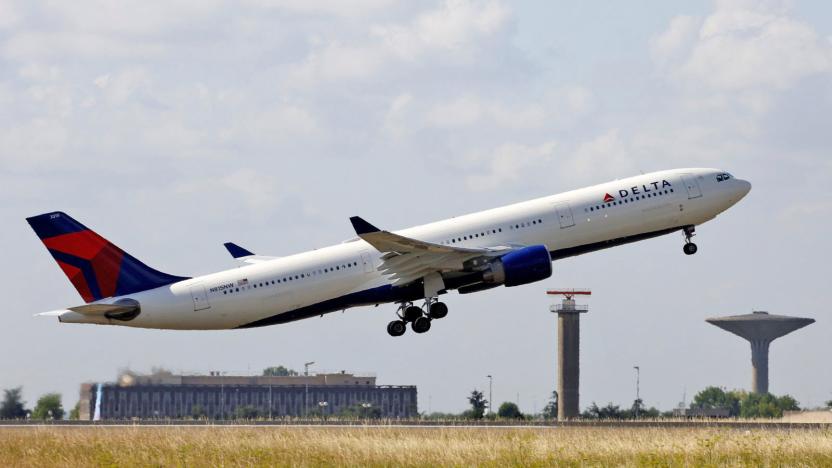
Delta phone app automatically checks you in for your flight
Modern air travel is full of hassles, but one of the most arbitrary is the check-in. Why do I have to manually confirm that I'm flying when I've already paid for tickets and chosen seats? A few airlines around the world have eliminated that drudgery, but now it's coming to a major American airline. Delta has updated its iOS app (there's no update for its Android equivalent yet) with automatic check-in -- you'll get your boarding passes 24 hours before takeoff. In theory, the days of frantic last-minute check-ins are over.
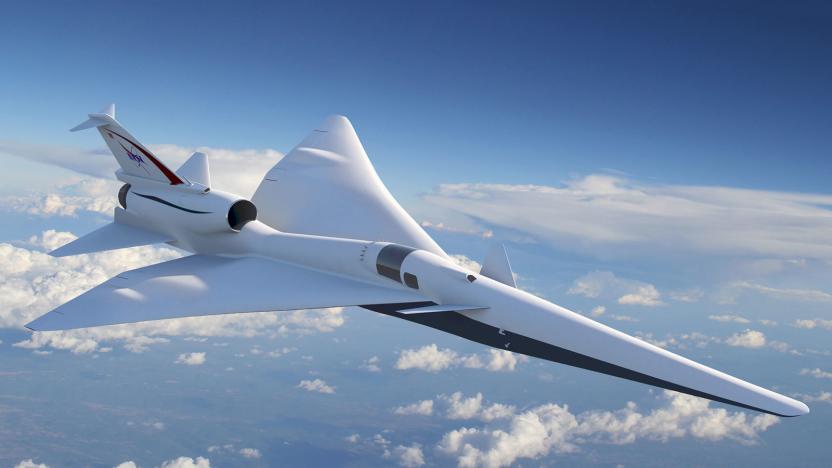
NASA moves ahead with plans to build a quiet supersonic jet
NASA's dreams of a quiet supersonic jet are one step closer to fruition. The agency tells Bloomberg that it'll start taking bids to build a larger (94-foot) real-world demo version of the aircraft that it tunnel-tested in June, and we now have a clearer sense of how well it'll perform in real life. The design is expected to reduce noise to no more than 65dBa, which is exceptionally quiet for an aircraft -- co-designer Lockheed Martin likens it to the inside of a luxury car. That would make it safe to fly just about anywhere. The Concorde, by contrast, was an assault on your ears at 90dBa and was limited to overseas flights.

NASA is putting hundreds of historical videos on YouTube
As part of its mission to make its research easier to access, NASA is uploading decades' worth of archived footage to YouTube. So far around 300 videos have been uploaded, with a further 200 on the way. Each clip documents an important part of NASA's history, including Space Shuttle landing research, X1 and X43A trial flights and the testing of the Lunar Landing Research Vehicle.
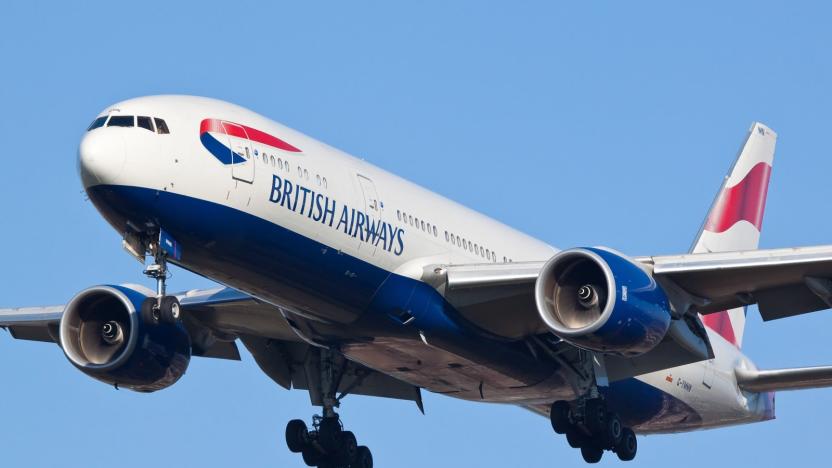
British Airways IT failure cancels many flights out of London (updated)
Airline glitches and the ensuing pandemonium are nothing new, but they've just hit one of the world's largest travel hubs. British Airways has suffered a global IT system failure so serious that it cancelled all its flights out of London's Heathrow and Gatwick airports before 6PM local time on Saturday. Some parts of BA's website and check-in features were unavailable, too, and passengers on London-bound BA flights also faced delays. They frequently can't even book new flights to make up for the old ones.
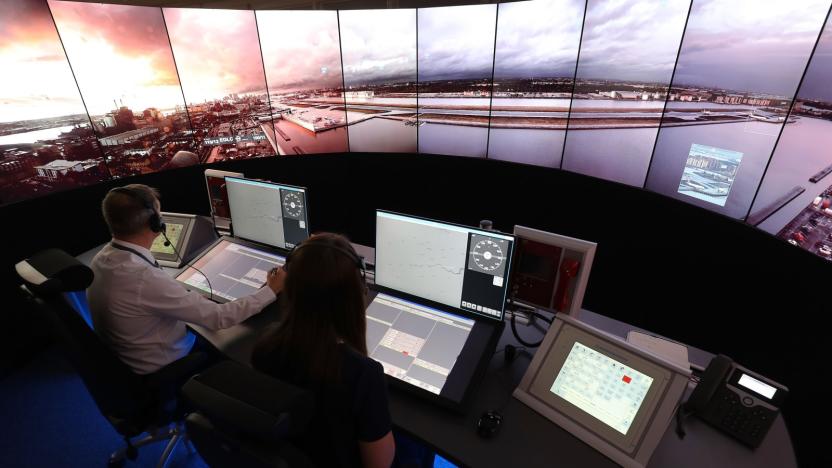
London airport to use 'digital' air traffic control tower
London City Airport will be the first in the UK to replace a traditional air traffic control tower with a "digital" one. A new, 50-metre tower will be built in the middle of the airport's long-stay car park, overlooking the runway, with 14 cameras and two custom pan-tilt-zoom cameras. The combined 360-degree footage will then be fed to a facility in Swanwick, Hampshire, where NATS, the UK's lead air traffic control provider, is already based. Operators will then monitor the live video on 14 HD screens, positioned in a circular formation to replicate a conventional tower.

Malaysia Airlines will be first to monitor its planes by satellite
Three years ago, Malaysia Airlines flight 370 disappeared over the South China Sea, starting an multinational hunt for the plane. Despite rumors of a sophisticated hijacking or seizure of the aircraft by a foreign government, it was presumed lost in the ocean. To prevent another disaster over open water, the UN pushed for particular plane signal system that can be tracked from the ground or by satellite. But Malaysia Airlines just struck a deal to use a network of the latter that will enable them to monitor their planes anywhere they fly on earth -- including over the polar ice caps.

FCC axes plan to allow phone calls on flights
There hasn't exactly been a groundswell of support for in-flight phone calls in the US, and regulators are now ready to drop the idea. FCC Chairman Ajit Pai has proposed that his agency cancel a 2013 proceeding that would have let people make cellphone calls on aircraft. It's in the "public interest," he claims, and removing the option from the table would be a win for people who "value a moment of quiet" in the skies.

iPad bomb threat led to recent device ban on flights
When the US and UK banned people from carrying large devices aboard flights originating in the Middle East and northern Africa, they only made vague claims about this being in response to threat reports. But just what were those threats, exactly? We might have an idea. A Guardian security source understands that the bans were prompted in part by a plot to tuck explosives into a fake iPad. This wasn't the only motivation -- there was a "combination of factors," according to the newspaper -- but it played an important role. It's not clear where and when this faux tablet bomb would have been used.

NASA's reconfigurable radio can track planes over oceans
When the 66 Iridium Next satellites are already in orbit, air traffic controllers and pilots will be able to track all flights, even planes flying across ocean. That's because the satellites are equipped with reconfigurable radios called AppSTAR, which NASA built together with Florida-based Harris Corporation. AppSTARs are capable of transmitting larger amounts of data than NASA's current radio communications network can. Plus, they can be reprogrammed from a distance through software upgrades, allowing the agency to tweak them for future missions.

Researchers figure out trick to a fruit fly's acrobatic flight
If you've ever tried to swat a fruit fly out of the air, you know how crafty the little buggers can be at avoiding your swings. Turns out that not only are they incredibly agile, they're super efficient as well, using only 12 muscles (each controlled by a single neuron) to propel itself through the air. And, thanks to the efforts of a team at CalTech, we know why these flies are so nimble. It's all in the muscles.
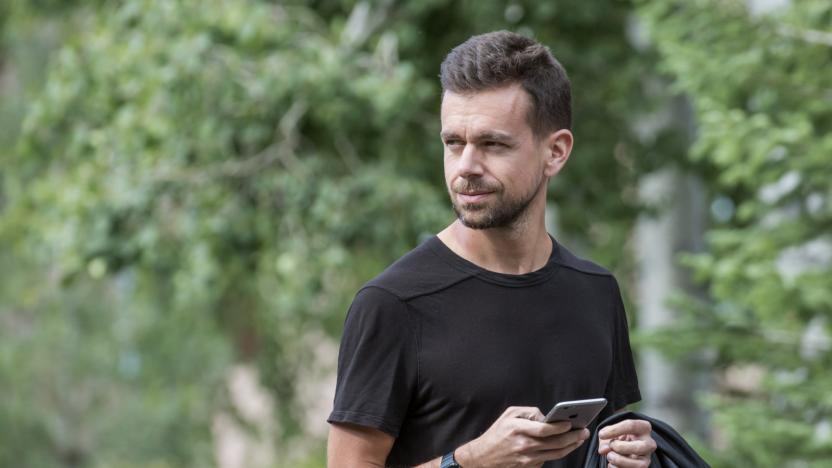
Twitter's Flight developer conference was scrapped this year
For the past two years, Twitter has put on a big show called Flight to dazzle mobile app makers with new tools and highlight new shifts in strategy. This year, though, Flight is grounded. Twitter confirmed in a statement to Recode that instead of the usual big fete, the company plans to host smaller, more intimate events around the country -- all the better to improve the Twitter's dicey ties with developers.

Virgin America's app has Spotify playlists based on your trip
Virgin America revealed a major overhaul to its website back in 2014, and now it finally has an app for Android and iOS. As you might expect, the retooled mobile software has a similar look and feel to the web portal, but you can use it to book flights, manage upgrades and access boarding passes on the go. There's a lot more playful illustration than you've seen in other airline apps, consistent with the approach Virgin takes to air travel. What's more, there's Spotify integration as well, offering an easy way to play music during your trip.

Solar Impulse 2 starts the last leg of its round-the-world flight
It's all coming down to this. Well over a year after beginning its round-the-world trip, Solar Impulse 2 has embarked on the final leg of its journey. The solar-powered aircraft left Cairo early on the morning of July 24th and should reach its original starting point, Abu Dhabi, within 2 to 3 days. This certainly isn't the most arduous part of the adventure (the Pacific crossing was far more challenging). However, it'll likely be the one that everybody remembers -- it'll be the definitive proof that clean energy can be used to accomplish impressive feats.

ICYMI: Reinvented wheel and drones that can evade
try{document.getElementById("aol-cms-player-1").style.display="none";}catch(e){}Today on In Case You Missed It: Stanford is teaching drones how to avoid either existing obstacles or ones that come in the form of an attacking human. It all works in real-time, which is why the video of the technology in action shows a fencer sparring with the drone. German students have created a wheel that works like a robotic bicycle chain, morphing its shape from round to triangular -- whatever is needed to get over obstacles in its path. Please watch the video from YouTuber Useless Duck Company for a Nintendo laugh. As always, please share any interesting tech or science videos you find by using the #ICYMI hashtag on Twitter for @mskerryd.

Google helps you find deals on flights and hotels
Planning a vacation often revolves around the delicate art of booking flights and hotels at just the right moment to get a great deal, and Google knows it. The internet pioneer is rolling out a slew of updates that, for the most part, are focused on getting you the best possible bargain. To start, you'll see automatic "deal" labels in searches whenever a hotel rate goes below the norm, and tips when tweaking the dates of your stay could save you some cash. You can also filter hotel searches for very exact criteria -- if you want to look for four-star hotels in Chicago that allow pets, you can. The tips and filters are only now rolling out (filters are limited to the US at first), but they'll be available worldwide over the course of the year.









